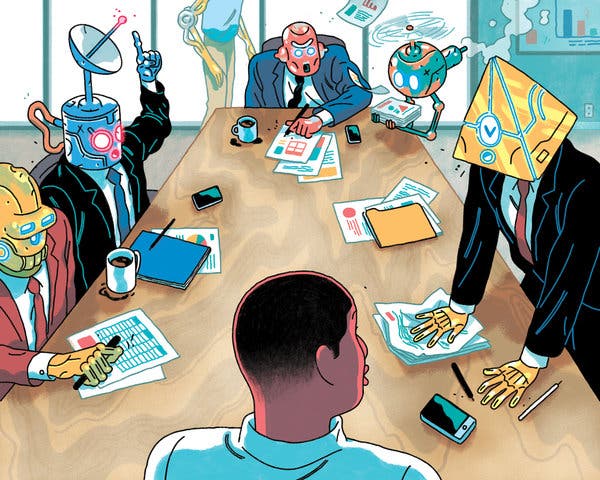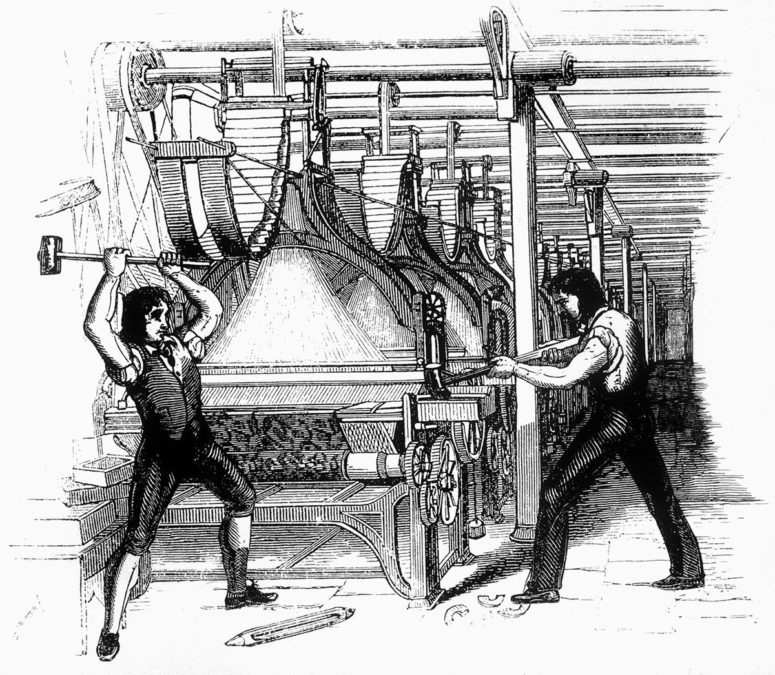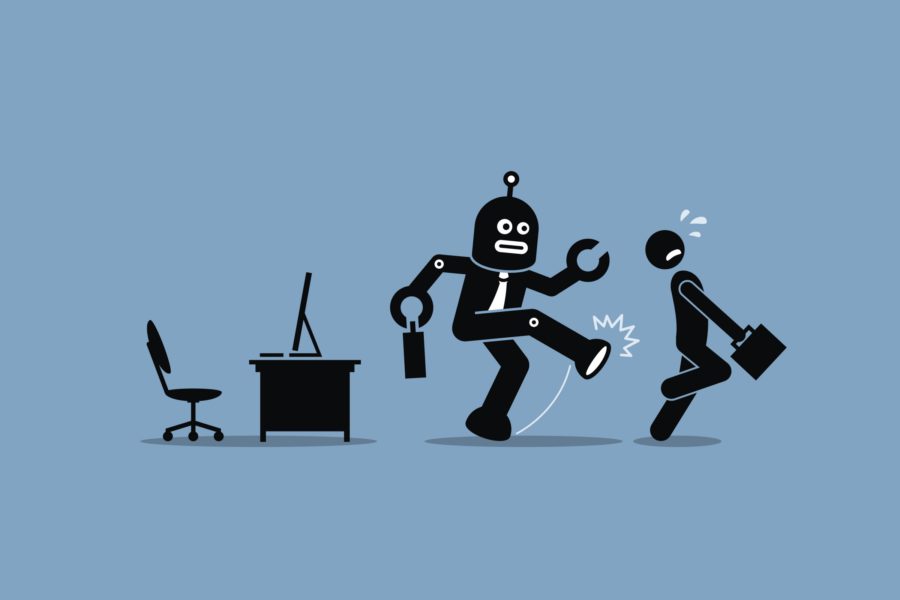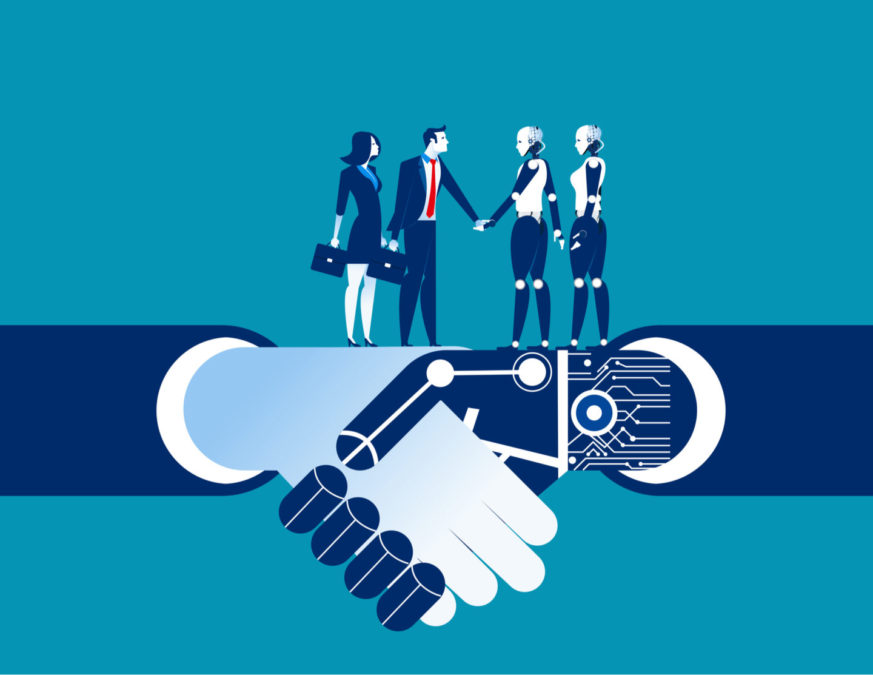Don't be afraid of a robot uprising, or why AI automation won't lead to mass unemployment …

Original material, author – Boris Maryanovich
'Since the beginning of the industrial age, humankind has regularly experienced the fear that technological change will cause massive unemployment. By and large, economists 'predictions are correct that people will find other employment, even if it takes a long period of painful addiction.'
– Kenneth Rogoff, Economist
The fear of automation came along with this industry breakthrough. One of the earliest known examples of such a phobia occurred during the industrial revolution in the early 19th century. At that time, mechanical looms began to proliferate. These new machines largely automated the manufacturing process, which meant that hand-held machines would soon be phased out. Frightened by the prospect of losing their earnings, disgruntled workers in the textile industry did the only thing that could save them: destroyed new machines, burned down factories and killed the factory owners. The newspapers dubbed them the 'Luddites', after Ned Ludd, the anti-tech fighter of the day.

Luddites crush machines
Ultimately, the violent methods of the Luddites failed to stop the hand-held machine tools from becoming oblivion. Yet contrary to initial fears, the number of textile-related jobs increased significantly between 1830 and 1900. The reason for this is simple economics. Lower manufacturing costs drove prices down for consumers, lower prices led to increased demand for fabric, which in turn required more machine tools, maintenance personnel and overseers, and ironically, these are fairly well-paid jobs and occupied many of the opponents of automation.
In fact, the phenomenon of “stolen” by machines of jobs has occurred in history many times. Cars replaced horses, rendering the work of horseshoe makers and harness makers useless, but new jobs such as car assemblers and refuellers emerged instead. Computers have reduced the need for secretaries and clerks, but with their introduction, programmers and IT professionals have become necessary. The Internet has replaced travel agents, librarians and salespeople with their online counterparts, technologies that require a large workforce to create and maintain.

Yet many say that this time is different, that technological progress will no longer have a positive impact on the need for labor. They cite recent advances in artificial intelligence as proof. The main argument goes something like this: the automation of the past (steam engine or mechanical loom) first replaced human muscles, and AI (autonomous cars and robots) will replace the human mind, thus new technologies will be much more revolutionary than anything before. .
On the surface, such reasoning carries a fair amount of meaning. In the end, what will remain for a person in a world dominated by superintelligent machines? But if you take a closer look, three problems become apparent, each of which calls into question the catastrophic nature of future human labor:
- Today AI is a set of fairly primitive algorithms for pattern recognition. Yes, they are effective on simple tasks such as image recognition, but these same algorithms do not cope with more complex tasks, the solution of which requires common sense, intuition and the ability to adapt. Take driving, for example. This aspect is considered by many to be on the verge of becoming fully automated, which would deprive millions of truckers and taxi drivers of their jobs. But despite years of development, Tesla's autopilot, which many describe as the most advanced system of its kind in the world, is still unable to safely navigate between lanes on a highway on its own, let alone navigate crowded streets and tight parking lots. An autopilot with a human level of driving will not appear overnight, rather like all technological innovations, the process will take decades of slow, painful and gradual exploration.
- Due to the fact that it is easier for us to understand what positions we, as humans, will lose, than to realize those that will become available to us, our predictions about employment have a negative connotation. But it has always been that way. Imagine what it would be like to tell people who lived a century ago that their great-great-grandchildren would become app developers, or SEO specialists, or SMM managers. Then no one could have imagined that such positions could appear. The same is happening now, no one living today has the slightest idea of what potential job opportunities may be created in the future. But this unpredictability does not mean that people as workers are doomed.
- People are adapting to automation. For example, bank employees used to spend most of their work time processing cash withdrawals. As ATMs took over this annoying feature, these employees needed to focus on the more human elements of their profession, such as personalized customer support. They needed to adapt their skill set, but they didn't lose their jobs. The artificial intelligence revolution will be more or less similar. Tasks that are structured and repetitive, such as accounting, can be outsourced to machines. But jobs that require curiosity, creativity, and / or empathy – such as caring for patients – are not suitable for such outsourcing. And such positions will not disappear, but will evolve, and as their productivity develops, the need for unique human labor will also grow.
Before the conclusion, it is worth recognizing one small but important disadvantage of automation: it will still replace some workers. At risk are those positions that are easy to automate. Fortunately, a potential solution to this problem already exists. The Sector Adaptation Program provides financial assistance, retraining and job reinstatement for those who have lost their jobs due to the ban on trade with other countries. Extending the benefits of the program to those who have lost their earnings due to automation, according to many policymakers, will facilitate the transition to an automated economy using artificial intelligence.

Thus, all the temporary inconveniences of this transition are only small costs, given the huge technological, financial and social benefits that we will receive in the long term. From a mechanical weaving machine to a modern robotic factory, automation increasingly relieves us of routine and time-consuming tasks, allowing our human creative thought and intelligence to flourish. She makes the world a better place and will continue to do so.
Original material, author – Boris Maryanovich
To be honest, I would only be for the fact that certain positions are completely transferred under the control of machines. And the point is not so much that it would be economically feasible, but that individual employees, in the process of searching for a new position, would think about their culture of communication and at least minimal tact and professionalism. I am sure that many readers will immediately remember a dozen examples on this topic.
Nevertheless, the author is right, we tend to see only negative sides in things and changes that are incomprehensible to us, for some reason we do not even want to admit that it could be 'better'. And even if current and future changes differ from innovations of the past in their speed and swiftness, they should not scare a sane and ready to develop person, but rather, on the contrary, push in the right direction.
